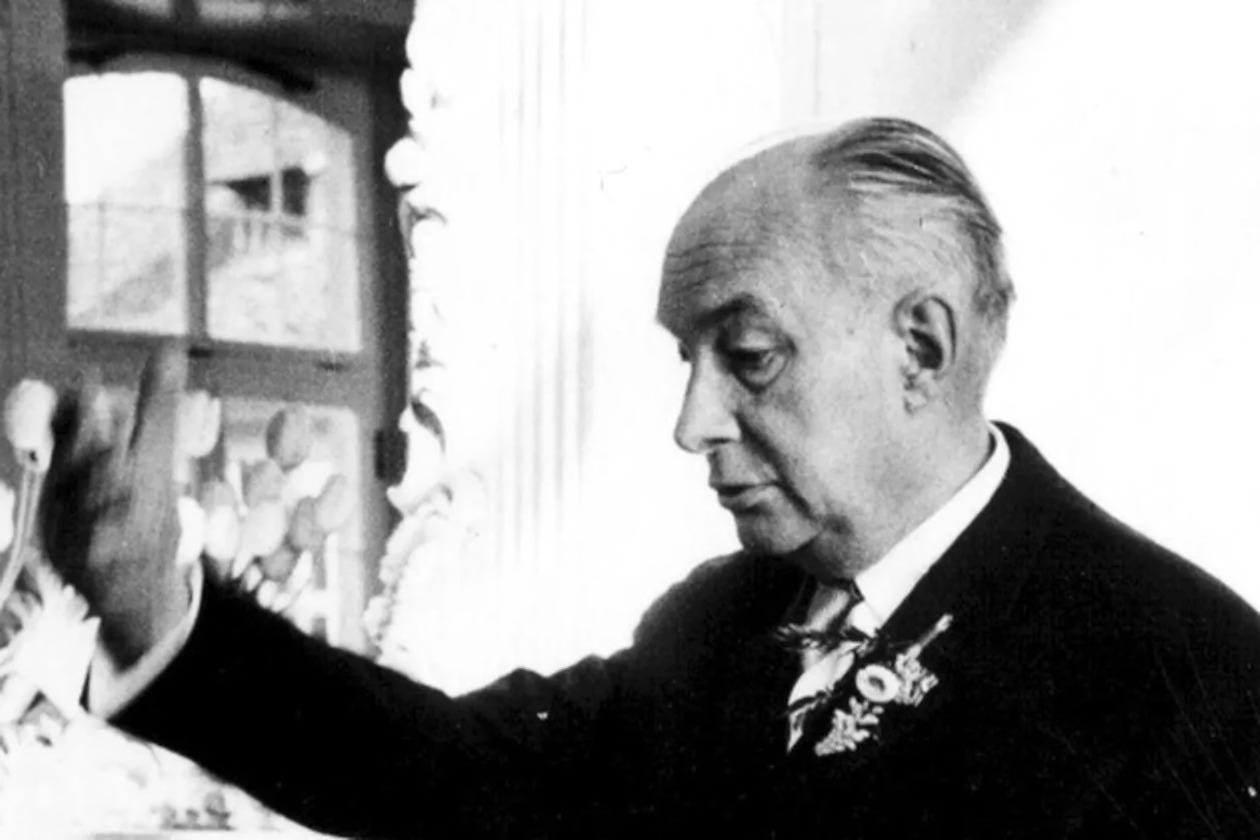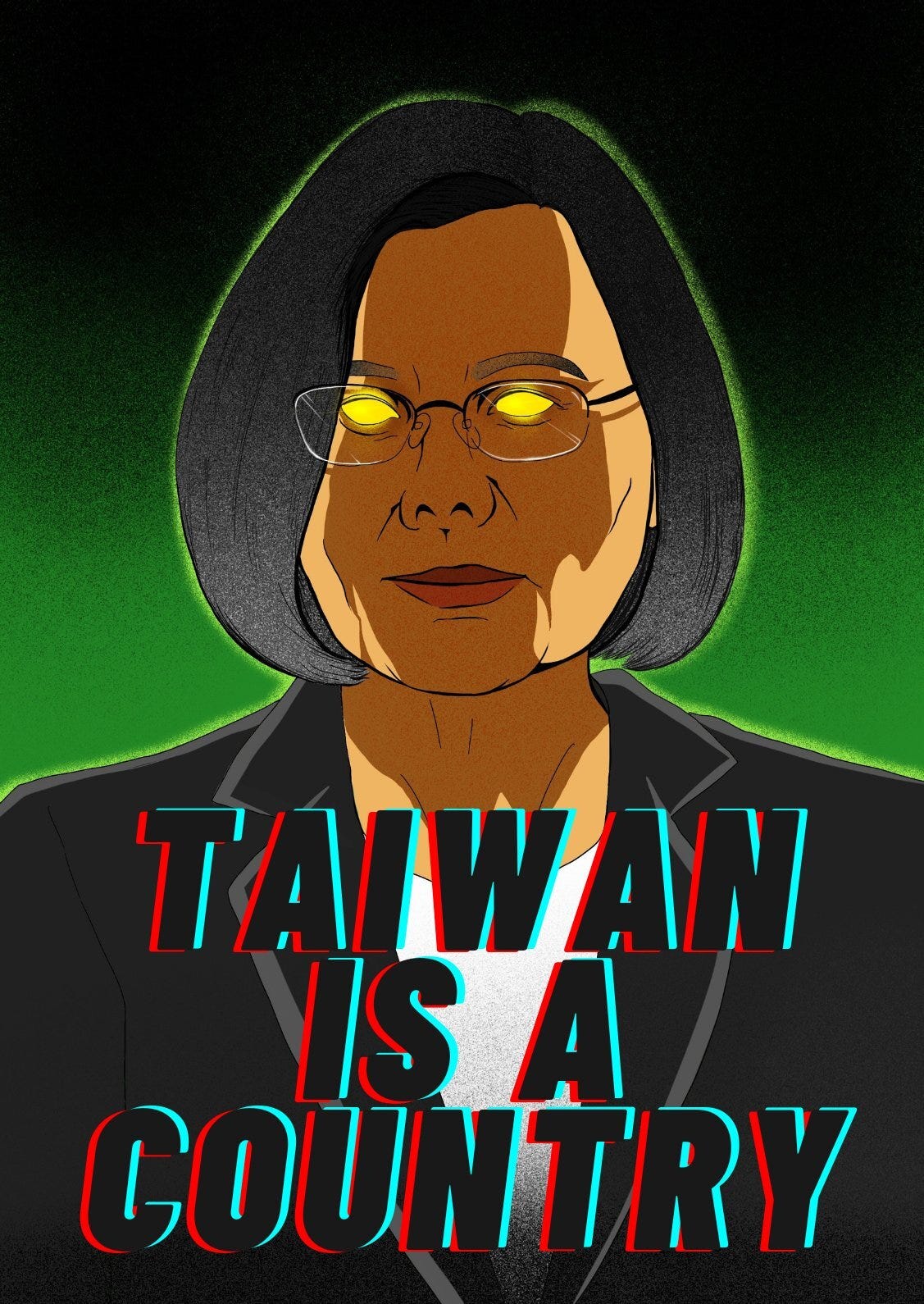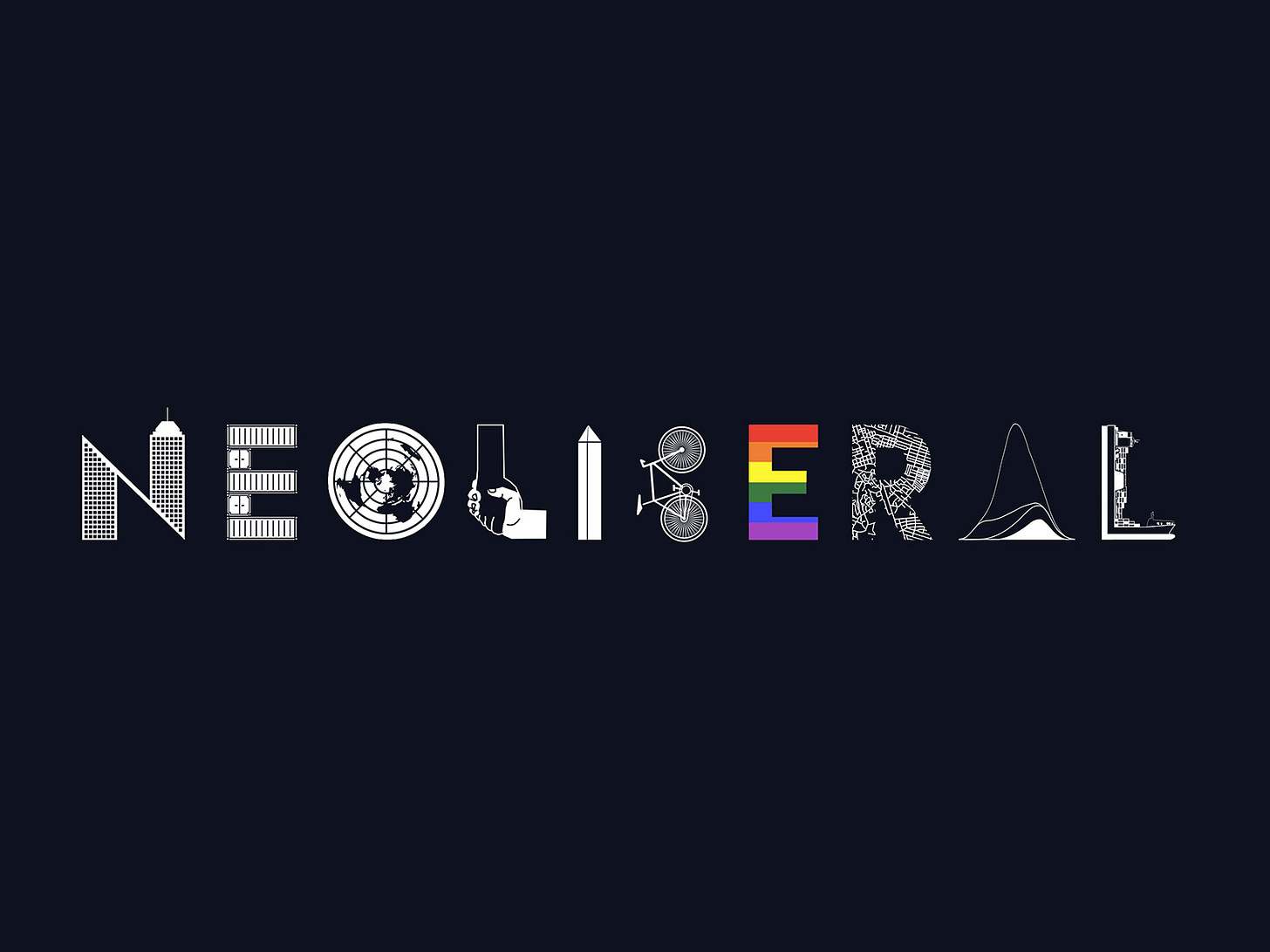Neoliberals!
Everything you didn’t want to know about the people who unironically call themselves neoliberals (myself included) 🌐🥑
In the last three years, a community—largely online, but in meatspace as well—has grown around a variant of liberalism that emphasizes evidence-based policy, pragmatic politics, free markets, and a strong social state. Many names have been used for different ideologies in this category: social liberalism, modern liberalism, ordoliberalism, new liberalism, and so on. But this community has adopted the label neoliberalism—which, until recently, was an almost entirely negative label, a nebulous epithet for global capitalism used mostly by its critics—for their brand of center-left liberalism.
So who are the neoliberals? What do we believe in? And why the heck are we adopting a term with negative connotations?
The birth of neoliberalism

The word neoliberalism has referred to three distinct ideologies throughout its history. The first generation of neoliberalism was developed by liberal intellectuals seeking to reinvent liberalism to meet the challenges of the early 20th century. When World War I and the Great Depression threw Europe into crisis, many people blamed liberalism and free-market capitalism, and looked to fascism and communism as attractive alternatives. By contrast, sociologist and economist Alexander Rüstow believed that liberalism was worth saving; it just needed to be modified to avoid the problems he saw with classical liberalism.
Classical liberalism, the original branch of liberalism expounded by John Locke, Adam Smith, and the like, emphasizes economic freedom and claims that the state should intervene in the market as little as possible. Rüstow agreed that markets were important, and he believed that socialism and communism were “incompatible with democracy, freedom, and human dignity” (Hartwich 2009, p. 16). However, he also believed that the state had a role in promoting competition, reducing inequalities, and providing social assistance to the unemployed. Through this ideology, which he called neoliberalism, Rüstow sought to chart a “Third Way” between classical liberalism and state socialism.
Rüstow was joined by 25 other intellectuals at the Walter Lippmann Colloquium in Paris in 1938. At first, the attendees agreed on the need to create a new liberalism to address the economic and political problems of the 1930s. However, the more right-leaning attendees like Friedrich Hayek and Ludwig von Mises soon drifted back to their classical liberal roots and broke from the left-leaning neoliberals.
After World War II, the ideas of neoliberalism were popularized in West Germany under the headings of “ordoliberalism” and the “social market economy.” But as ordoliberal ideas became dominant in West Germany, their association with the original label of neoliberalism was gradually forgotten. Eventually, the word neoliberalism became associated with the resurgence of classical liberal ideas in the 1970s and ‘80s, led by economists like Milton Friedman and by politicians like Margaret Thatcher and Ronald Reagan. This second generation of neoliberals advocated for pro-market economic reforms like privatization, deregulation, and free trade.
Although second-generation neoliberalism had many successes, like the rapid economic growth and reduction of poverty in many low- and middle-income countries, it has also been heavily criticized for contributing to income inequality within countries and unemployment in high-income countries. This has led to the overuse of “neoliberalism” as a “political swearword,” an epithet for “anything bad and vaguely capitalist”—especially by leftists. As Oliver Marc Hartwich writes:
Some authors have argued that the word neoliberalism resurfaced in Latin America where pro-market reformers were influenced by German neoliberal thinkers. For the Latin American left, ‘neoliberalism’ became a synonym for everything they despised, and this may well be how ‘neoliberalism’ eventually turned into a political swearword. (Hartwich 2009, pp. 22-23)
Recently, some center-left liberals have started reclaiming this “swearword,” becoming the third generation of neoliberals. In 2016, the Adam Smith Institute started calling themselves neoliberals because they felt that no other label fit them well, including “libertarians.” Sometime around 2017, the r/neoliberal subreddit became the home for Reddit users who believed in markets’ power to create wealth and lift millions around the world from poverty, but also the importance of limited regulations and the welfare state in promoting equity and other social values. (The edginess of using the label semi-ironically is a major reason why the name “neoliberal” was chosen for the subreddit.) In 2018, Jeremiah Johnson and Colin Mortimer co-founded the Neoliberal Project to promote the new “neoliberal” identity as an alternative to socialist and right-wing populism. (Although the Neoliberal Project is officially separate from the r/neoliberal subreddit, it functions as the de facto leadership for the neoliberal movement, including the subreddit. The Neoliberal Project does manage the Facebook group Neoliberal Memes for Free Trading Teens, as well as its own Twitter and Instagram accounts.)
What neoliberals believe
Today’s neoliberal movement is a big tent of people from across the political spectrum who believe in core liberal values like democracy, human rights, and free markets, as well as the central role of empirical research in guiding public policy. Members drift into the neoliberal tent from diverse ideological backgrounds, but two of the most common types of neoliberals are “progressives who believe in markets” and “libertarians who believe in market failures”—people on the economic left and right who’ve moved toward the middle.
Because of this diversity of thought, there isn’t one set of things that all neoliberals believe. However, we generally agree on certain broad approaches to public policy and some specific policy proposals. In what follows, I’m going to try to summarize what I see as the broad consensus among self-described neoliberals, based on my experience participating in the online community. Colin Mortimer and Jeremiah Johnson have written a two-part manifesto for the neoliberal movement, which I’ll link here:
“What Neoliberals Believe” by Colin Mortimer
“What Neoliberals Believe: Part 2” by Jeremiah Johnson
On economic issues, neoliberals generally support open, competitive markets (often with some regulation) and a robust welfare state to redistribute wealth and provide social services. We enthusiastically support free markets because they have led to unprecedented progress in human well-being. At the same time, we recognize that free markets don’t always lead to socially optimal outcomes. For example, climate change is a negative externality created by burning fossil fuels. The market for energy is less than optimal because fossil fuel burners don’t pay for the damage caused by their carbon emissions. So neoliberals support carbon pricing schemes, such as carbon taxes and cap-and-trade, that make polluters pay for these costs. In the short term, this causes firms and ultimately consumers to burn less fossil fuels. In the long term, it encourages investment in cleaner energy sources, speeding along the transition to a low-carbon economy.
A core part of neoliberal identity is our strong support for economic globalization. In particular, neoliberals support free trade—the free movement of goods between countries—because it creates economic benefits for the countries involved, the world as a whole, and especially the global poor. Similarly, we support “open borders,” or the removal of barriers to global migration, in large part because we consider it one of the best ways to reduce global poverty. The European Union is an exemplar of internal free trade and open borders, as both people and goods can move freely between most EU countries. Neoliberals also have deep concern for refugees, who are often fleeing violence in their home countries, and strongly support allowing them to resettle in advanced countries like the United States.

Another major focus area of the neoliberal movement is urban development. Zoning laws and parking requirements at the local level restrict the amount of housing that can be built and make it artificially convenient to commute by car rather than public transportation—limiting affordability, reinforcing racial and economic segregation, and increasing Americans’ carbon footprints. We want to peel back these laws and make cities more affordable, equitable, and sustainable. This pro-housing, pro-density stance makes us part of the YIMBY movement.

Neoliberals generally take liberal or progressive positions on social and cultural issues. As Colin Mortimer writes: “We should strive for a society that is inclusive regardless of race, sex, gender, religion, or sexual orientation. Beyond that, creating inclusive institutions also makes our society more resilient and our economy stronger.” So, for example, most neoliberals support marijuana legalization, LGBTQ+ rights, and anti-discrimination laws. In the United States, neoliberals generally favor evidence-based criminal justice reforms to curb police brutality and mass incarceration, but reject radical proposals like “defunding” or abolishing the police. The Neoliberal Project and r/neoliberal mod team officially support trans rights, but many users on r/neoliberal object to allowing transgender athletes to compete with their preferred gender or providing medical transition care to children and teens.
Finally, neoliberals don’t agree on much when it comes to foreign policy, but we tend to support things like democracy and human rights, international institutions, and U.S. involvement in world affairs. We support democratic countries like Taiwan and South Korea, and we strongly oppose authoritarianism and oppression, like the persecution of Uyghurs by the People’s Republic of China. The Iraq War has made many Americans understandably skeptical of U.S. intervention in world affairs, but many neoliberals would point out that U.S. intervention has often been a force for good, as in Kosovo, and non-intervention has often been disastrous for human rights, as in the Holocaust and the Rwandan Genocide. Many of us believe that the United States should cooperate with its allies and international institutions like the UN and NATO rather than take an “America First” approach.

Neoliberal community culture
As a largely online community, the neoliberal movement has a distinct culture, including unique memes and traditions. One community tradition is the Neoliberal Shill Bracket, held every March on Twitter by the Neoliberal Project. In the Shill Bracket, users vote on Twitter accounts followed by the official @ne0liberal Twitter account, and the ultimate winner is crowned Chief Neoliberal Shill of the year. The past winners have been:
2018: Noah Smith, Bloomberg columnist and writer at Noahpinion
2019: Matt Yglesias, writer at Slow Boring and co-founder of Vox
2020: Scott Lincicome, senior fellow at the Cato Institute
2021: Bastiat, liberal Twitch streamer
Another community tradition is the subreddit fundraisers, which are held about once or twice a year on r/neoliberal. Subreddit users donate to a charity chosen by the mod team in exchange for bounties such as custom flairs displayed next to their usernames on the sub. The charity is usually a GiveWell Top Charity like the Against Malaria Foundation or Deworm the World, but for the June 2020 fundraiser, the mod team chose the Elton John AIDS Foundation because they consider it a high-impact way to help LGBTQ+ people around the world. It’s proven to be an effective mechanism for aligning users’ desires for glory and status on the sub with the social goal of promoting EA-style effective giving.
Conclusion
So there you have it. As a token of appreciation for reading this whole post, I give you my favorite neoliberal meme of all time, courtesy of Pretzel:
Thanks to cam (Twitter: @im_a_ct) for feedback.




Thanks for sharing this! I didn't know such a community had formed, and with that name. I can relate to everything you described, with few changes. Browsing the subreddit now, too. 👍
I found this interesting and so I've joined the subreddit - I'm not sure if I'd describe myself as "neoliberal", but I agree with the movement as described, although I think I'd place more emphasis on the social welfare side of things and describe myself as a Social Democrat - the National Health Service fills me with patriotic pride, and I really love the policies (and fjords) of Norway.
I'm still working out my opinions on issues like drug policy, but I'm becoming more sympathetic to the argument that just because I think something's a bad idea doesn't mean it's a good idea to ban it, so I think I'm becoming more neoliberal over time.